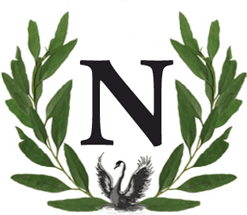
The Office of the Nobel Laureates
Western Australia can proudly claim to be home to the breakthrough research that won the 2005 Noble Prize in Physiology and Medicine.
The Marshall and Warren story is now legend as generations of budding scientists learn how two Australians, one a 31 year old doctor and the other a 42 year old pathologist, with very little funding or support for their ideas, overcame medical dogma, personal ridicule and pharmaceutical conglomerates to break through the barriers and revolutionize the diagnosis and treatment of a disease that affects 50% of the world’s population.
Their story has all the elements of inspiration, struggle, intrigue, serendipity, leadership, perseverance, determination and ultimately, success. It is also very much a Western Australian story. For this and many other reasons, the State of Western Australia, recognizes the value that Marshall and Warren bring to the state and, in 2006, six months after the announcement of the Nobel Prize, the State created the role of Western Australia Ambassadors for Life Sciences.
The State expects that the Nobel laureates “will use their positions and influence to advise, educate, inform, promote and inspire.” To support the WA Ambassadors for Life Sciences, the state contributes to the funding of an office, The Office of Nobel Laureates, which is located within the Claremont campus of the University of Western Australia.
The Impact of the Nobel Announcement
The Nobel Foundation has a tradition of not advising the recipients of the Nobel Prize until just a couple of hours prior to the release of their names to the eagerly awaiting international media. The result is that the recipients have no time to prepare for the personal shock and exhilaration of being named a Nobel Prize winner and are unprepared for the tsunami of requests for media interviews and invitations that come from around the world.

Marshall and Warren were announced as Nobel Prize winners on Monday 3 October 2005 and within two weeks Marshall approached Mrs Kris Laurie, then CEO of the Leukaemia Foundation of WA, to “manage this mess”. As Kris describes receiving the email from Barry’s wife Adrienne, “I hesitated for at least three seconds before replying that I’d love to, and so by return email Barry sent through the first To Do list. I recall Barry saying that he had 2,000 unread emails in his inbox and my email soon suffered a similar fate.”
The first few years were a wild ride as interest in Barry and Robin remained intense. Apart from the fact that they are both engaging speakers and down to earth characters, their discovery was relevant and important to the health and wellbeing of so many people who had suffered, or seen a relative suffer from stomach ulcers. Their discovery was something people could understand and talk about, which is different to many Nobel Prize discoveries that while obviously hugely important, are often as difficult to pronounce as they are to understand.
The Office of Nobel Laureates (ONL) is now in its 8th year of operation and while interest in Barry and Robin remains very high, the office systems are well established and Kris is supported by Susie Maluish, who is also Robin Warren’s PA, and Jeanette Harrison, the office accountant who works two days a week.
In addition to providing the infrastructure support required by the WA Ambassadors for Life Sciences, ONL is the primary repository of the WA Nobel Laureates’ archives and the staff is actively engaged in the analysis of the social impact (ripple effect) that results from having two Nobel Prize winners in Western Australia.
The funding arrangement from the WA Government is for 10 years and will expire on 30 June 2016. Allowing time for reporting requirements ONL is scheduled to close its doors on 31 August 2016. Please check this website for information about how to contact the Nobel Laureates after the closure of ONL.


